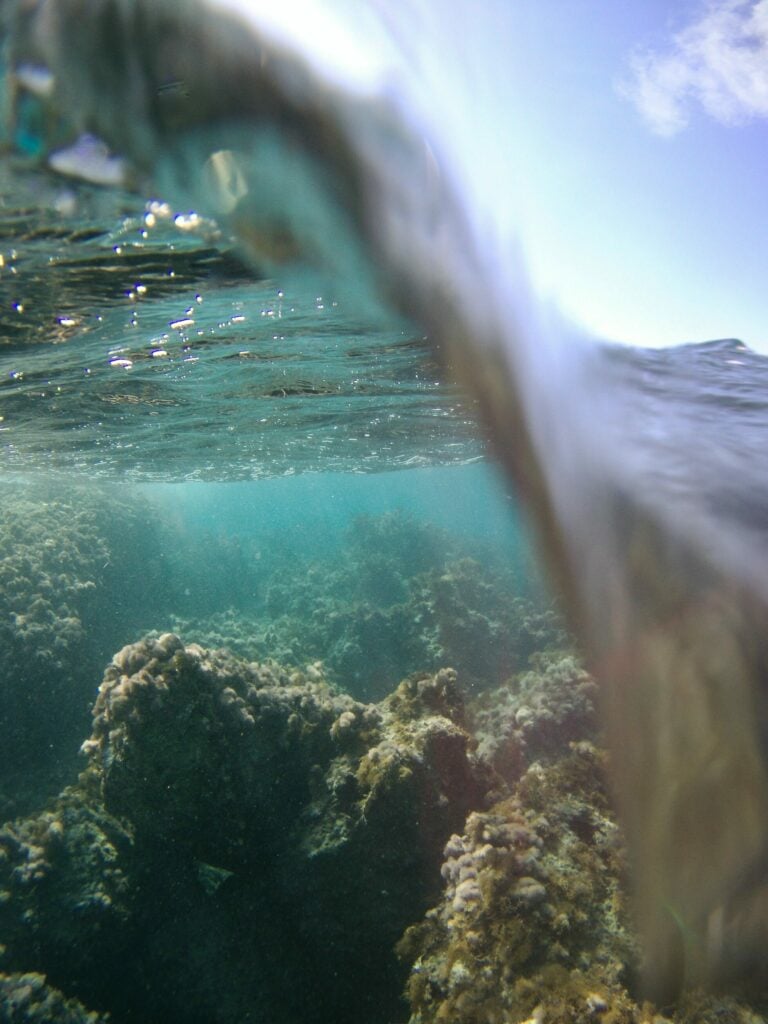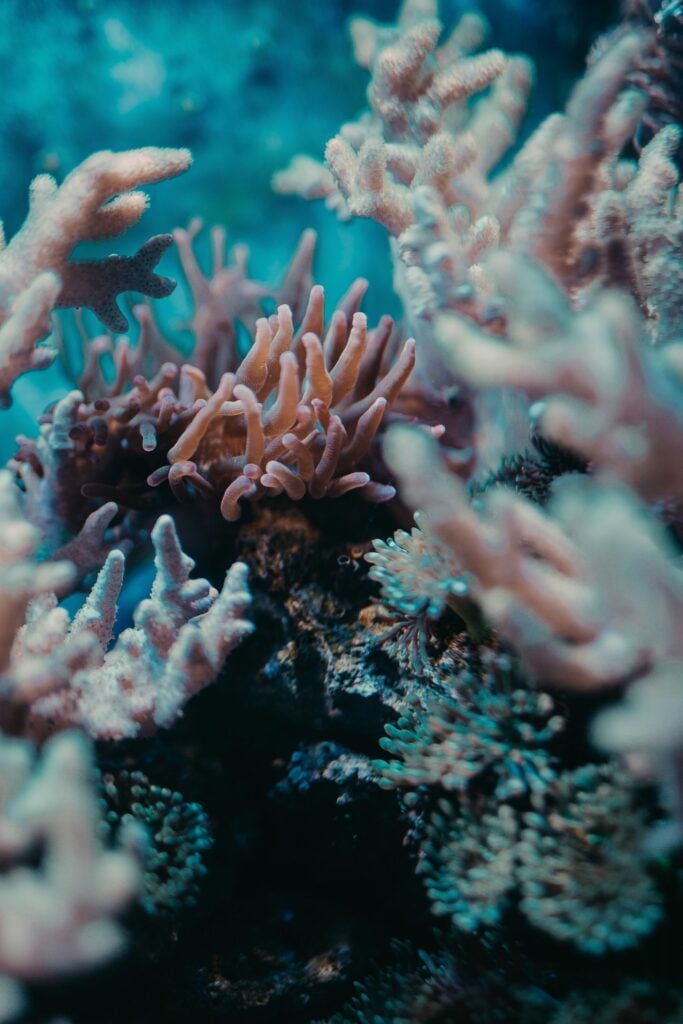GVI
Posted: July 18, 2024

GVI
Posted: February 22, 2023
As the climate rapidly changes, the world’s coral reefs are at risk. These valuable ecosystems are under threat due to increased ocean acidification and higher ocean temperatures, caused by the burning of fossil fuels and other human activities. For years, scientists have studied the vast impacts that climate change has on coral reefs, and the findings are worrying. From the impacts of carbon dioxide pollution on coral bleaching to the economic toll of reef loss – the future of coral reefs is in jeopardy.
At its core, climate change is the result of the increased atmospheric concentrations of carbon dioxide and other greenhouse gases released by human activity. This has caused a faster rate of global warming and subsequent ocean acidification, which is the process of increasing acidity levels in the ocean. These two environmental factors are primary drivers of coral reef degradation, as coral struggle to cope with increased temperature and acid levels. The challenges to reef survival become even more complicated and destructive as other climate change-related factors such as tropical cyclones and ocean currents occur.
Carbon dioxide is one of the main greenhouse gases that lead to global warming, and its concentration in our atmosphere has been steadily increasing since the Industrial Revolution. Although carbon dioxide is essential for life on Earth, too much of it can have immense negative impacts. In terms of the ocean and its inhabitants, an increase in the concentration of carbon dioxide has caused ocean acidification, which is now a major threat to coral reefs.
Carbon dioxide reacts with sea water to create carbonic acid, which leads to an overall lowering of pH levels in the water. This is problematic since many organisms, including corals, are highly sensitive to changes in pH levels. As pH levels become more acidic, corals struggle to keep their calcium carbonate skeletons, leading to coral bleaching and increased mortality rates.
Coral bleaching is when corals lose their colour due to a decrease in the number of photosynthetic algae living inside them. This process accelerates when ocean pH levels become more acidic from too much CO2 in the water, leading to distorted calcium carbonate formations that weaken corals’ defense mechanisms. This also makes corals more susceptible to diseases, further decreasing their population and their chance of survival.
Ocean acidification also affects the growth and reproduction rates of many marine creatures, including coral reefs. Rising ocean acidity levels alter the water chemistry, making it difficult for organisms to extract nutrients from the water, damaging food webs across marine ecosystems. In turn, this affects the population growth of other non-coral species.


The effects of climate change on coral reef health must be measured in order to assess the magnitude of the risk it poses. Large-scale studies involving researchers from multiple fields have been conducted to understand how climate change affects coral health. Some of these studies include assessments on the prevalence of coral diseases, increased water temperature tolerance, and rate of coral bleaching.
The reports from these studies serve as evidence for understanding how much damage climate change has inflicted on coral reef ecosystems as well as what species may benefit from it in the near future. Additionally, these studies help identify ways for reef conservation efforts to be more effective and comprehensive.
The effects of global warming and ocean acidification cannot be reversed overnight or have a quick fix but there are strategies that can help mitigate its effects on coral reefs. These strategies include reducing greenhouse gas emissions, implementing restrictions on unsustainable fishing practices, investing in sustainable aquaculture, creating marine reserves, and enforcing local laws that protect reefs.
These strategies also advocate for adaptation measures such as improving aquaculture management practices and setting rigorous water temperature standards for reef conservation. Research by top universities has indicated that a combination of mitigation and adaptation measures have great potential for preserving coral reefs and their biodiversity for generations to come.
One of the most effective tools for addressing climate change and its consequences is government intervention. Governments around the world need to take a greater role in protecting coral reefs through the implementation of policies that address both the direct and indirect causes of climate change. Through rigorous regulations concerning activities that produce greenhouse gases or damage coral ecosystems, governments can set narrower parameters on what can and cannot be done in regards to conservation efforts.
On top of this, governmental subsidies for sustainable aquaculture can help ease commercial fishing pressures on coral reefs. Additionally, funds for research from government bodies are necessary for assessing reef health and devising better strategies for adaptation and mitigation efforts.
The loss of coral reefs due to climate change has major economic implications for countries bordering them. Coral reefs provide a multitude of benefits for local communities through fisheries income, storm-defense surfacing, coastal protection from erosion, tourism revenue, as well as providing many resources used in medical research. Local fishing industries are especially dependent on reef health.
Coral losses threaten communities by reducing fish stocks and by negatively affecting tourism. The importance of keeping reefs healthy becomes even more pressing when considering its long-term economic relevance since these coastal ecosystems protect many areas from flooding or erosion.
The consequences brought by climate change demonstrate why conservation efforts are needed more than ever before. In response to growing threats to reef health, many organisations are engaging in creating conservation programs that focus on restoring coral reefs and raising awareness about their importance. Such efforts range from scientific research projects like experiments on creating artificial reefs with 3D printing technology, to smaller scale programs such as supported programs with local tour operators that help educate people about reef conservation.
The conservation efforts deployed by different organisations around the world dramatically vary depending on geographic location but share a common goal – to safeguard against declining reef health from higher ocean temperatures and acidity levels.
Climate change is wreaking havoc on coral reefs at an alarming rate; thus requiring immediate action from governments and individuals if these ecosystems are to be saved. All strategies employed should also consider economic implications since many communities depend heavily on healthy coral reefs for livelihoods. Although achieving global awareness and taking collective action may prove difficult in order to mitigate its effects, it is essential if we wish to preserve our planetary heritage.
Join GVI and make a difference in coral reef conservation. Dive into hands-on efforts and learn about the threats to these ecosystems. Work alongside experts in research, monitoring, and restoration. Help promote sustainable practices in local communities. Travel to amazing locations, including Mexico and Seychelles. Be part of the solution for our oceans.

GVI
Posted: July 18, 2024